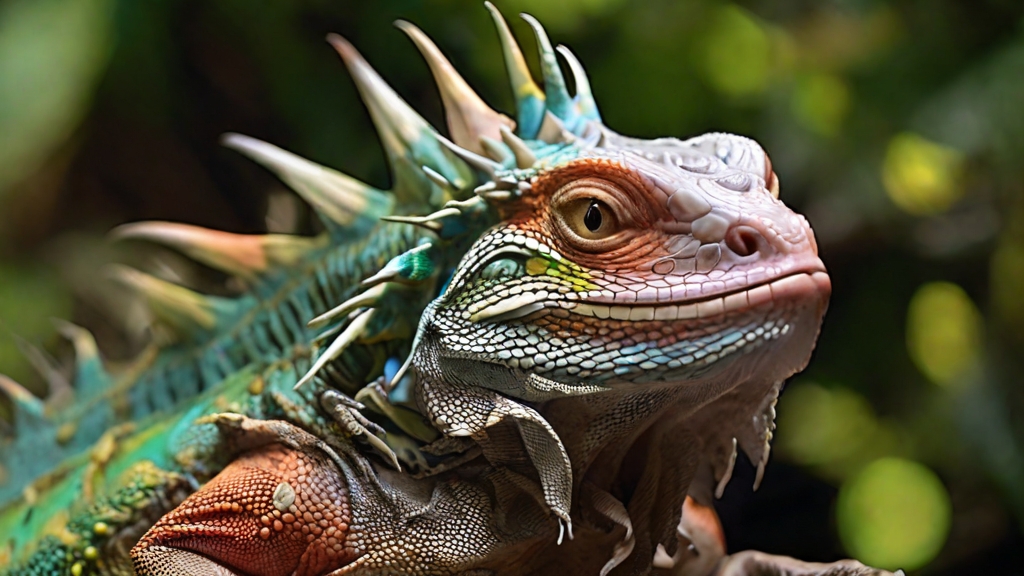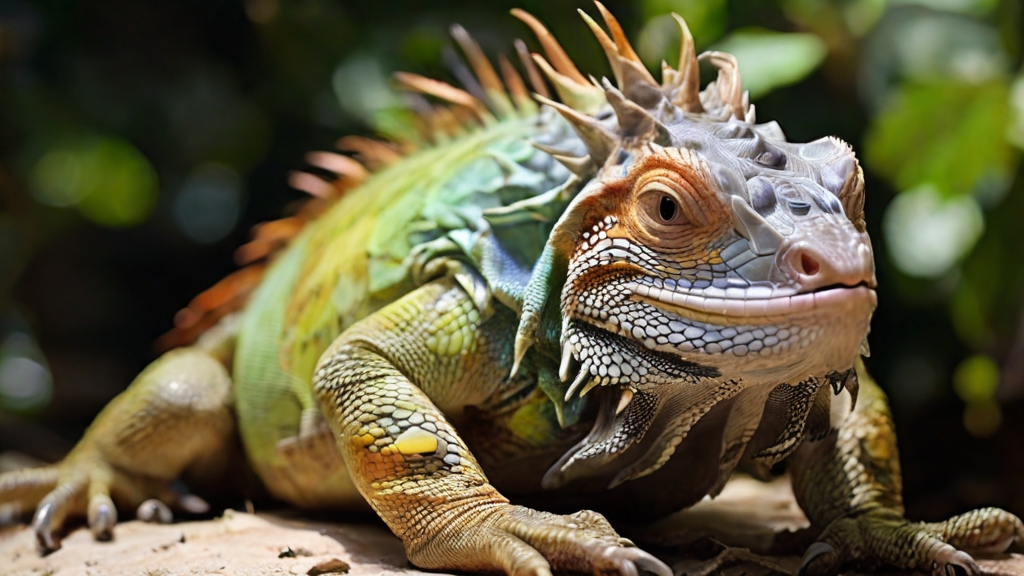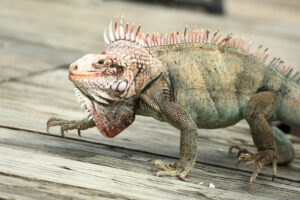Iguanas are fascinating reptiles known for their unique appearance and diverse diet. As an iguana owner, it’s essential to provide your pet with a well-balanced diet to ensure optimal health and vitality.
While iguanas primarily feed on leafy greens and vegetables, you might wonder whether carrots can be a suitable addition to their diet. In this article, we will explore the question, “Can iguanas eat carrots?” and provide you with valuable insights on the topic.
The Diet of Iguanas
Before diving into the specifics of feeding carrots to iguanas, let’s first understand the general dietary requirements of these reptiles.
Iguanas are herbivorous creatures, meaning they primarily consume plant matter. A well-balanced diet for an iguana consists of leafy greens, vegetables, and occasional fruits.
Types of Food Iguanas Consume
Iguanas have a wide range of food options, including:
- Leafy greens: Collard greens, kale, mustard greens, and dandelion greens are excellent options for iguanas.
- Vegetables: Bell peppers, squash, zucchini, and green beans provide additional variety to their diet.
- Fruits: Small amounts of fruits such as strawberries, mangoes, and papayas can be given as occasional treats.
The Importance of a Balanced Diet for Iguanas
Providing a balanced diet is crucial for the overall well-being of iguanas. A diverse selection of foods ensures they receive the necessary nutrients, vitamins, and minerals to thrive.
It’s essential to replicate their natural diet as closely as possible to support their growth and prevent nutritional deficiencies.
Can Iguanas Eat Carrots?
Carrots are commonly known as a nutritious vegetable for humans, but can they also benefit iguanas? Let’s explore the nutritional content of carrots and discuss the benefits and drawbacks of including them in an iguana’s diet.
Nutritional Content of Carrots
Carrots are rich in various nutrients, including:
- Vitamin A: Carrots contain high levels of vitamin A, which is crucial for maintaining good eyesight and promoting healthy skin.
- Dietary Fiber: The fiber content in carrots can aid digestion and promote gut health.
- Antioxidants: Carrots are packed with antioxidants, which help in fighting against harmful free radicals.
Benefits and Drawbacks of Feeding Carrots to Iguanas
While carrots can provide some nutritional benefits, they should be fed to iguanas in moderation due to their high sugar content.
The natural sugars present in carrots can lead to digestive issues and even contribute to obesity in iguanas if overfed.
| Nutrient | Importance for Iguanas |
|---|---|
| Vitamin A | Essential for maintaining good eyesight and skin health |
| Dietary Fiber | Aids digestion and promotes gut health |
| Antioxidants | Helps fight against harmful free radicals |
| Vitamin K | Supports blood clotting and bone health |
| Potassium | Important for proper muscle and nerve function |
| Vitamin C | Supports immune system and promotes collagen production |
| Calcium | Crucial for healthy bone development and muscle function |
| Phosphorus | Plays a role in energy production and bone health |
| Magnesium | Essential for enzyme function and overall health |
| Beta-carotene | Converts to vitamin A and acts as an antioxidant |
| Lutein and zeaxanthin | Promote eye health and protect against oxidative stress |
Additionally, carrots are relatively low in calcium and other essential nutrients that iguanas require for proper growth.
Safe Alternatives to Carrots
To ensure your iguana’s diet remains balanced and nutritious, it’s recommended to explore alternative vegetables that are more suitable for their dietary needs. Here are some safe alternatives to carrots:
- Leafy Greens: Collard greens, kale, and mustard greens are excellent choices as they provide essential nutrients without the high sugar content.
- Squash and Zucchini: These vegetables are low in oxalates and can be included in an iguana’s diet in moderation.
- Green Beans: Rich in fiber and low in sugar, green beans offer a healthy option for iguanas.
When introducing new vegetables to your iguana’s diet, it’s crucial to wash them thoroughly, remove any pesticides, and chop them into appropriate sizes to prevent choking hazards.
Feeding Tips for Iguanas
To ensure your iguana remains healthy and happy, here are some feeding tips to keep in mind:
- Understand the Dietary Requirements of Iguanas: Familiarize yourself with the specific nutritional needs of iguanas to provide a well-balanced diet.
- Create a Well-Balanced Diet Plan: Include a variety of vegetables and leafy greens in your iguana’s diet to ensure they receive the necessary nutrients.
- Common Mistakes to Avoid: Avoid feeding your iguana foods that are toxic or potentially harmful, such as avocado, rhubarb, or iceberg lettuce.
By following these tips, you can provide your iguana with a nutritious diet that supports their growth and overall well-being.
Conclusion
In conclusion, while carrots have some nutritional benefits, they should be fed to iguanas in moderation due to their high sugar content.
Instead, focus on incorporating a variety of leafy greens and vegetables that provide essential nutrients without the drawbacks.
Remember to always prioritize a well-balanced diet for your iguana to ensure their long-term health and happiness.
FAQs
u003cstrongu003eCan iguanas eat other types of fruits?u003c/strongu003e
Yes, iguanas can consume small amounts of fruits such as strawberries, mangoes, and papayas as occasional treats. However, fruits should not make up a significant portion of their diet.
u003cstrongu003eHow often should I feed carrots to my iguana?u003c/strongu003e
Carrots should be fed to iguanas sparingly, if at all, due to their high sugar content. It’s best to focus on providing a diverse range of leafy greens and vegetables as the primary components of their diet.
u003cstrongu003eAre cooked carrots safe for iguanas?u003c/strongu003e
It’s generally not recommended to feed cooked carrots to iguanas. Raw vegetables retain more of their nutritional value and are easier for iguanas to digest.
u003cstrongu003eCan iguanas eat carrot tops?u003c/strongu003e
Carrot tops are safe for iguanas to eat. They can be included as part of a varied diet, but they should not be the sole source of nutrition.
u003cstrongu003eCan feeding too many carrots cause health issues in iguanas?u003c/strongu003e
Feeding too many carrots can contribute to digestive issues and obesity in iguanas due to their high sugar content. It’s important to provide a balanced diet and limit carrot consumption.




